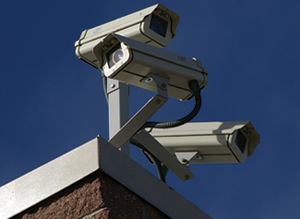Privacy is Lost in the Age of Social Media

As I have tried to reinvent myself in this age of social media, one change I’ve noticed is especially striking. People, both young and old, are giving away their privacy online more than ever before. Sadly, they don’t seem to know or care about it.
I’m included—but not willingly. If I google myself, it’s horrifying. I find stuff I wrote years ago that I had long forgotten. It’s also disconcerting to read one of your own articles when searching for new information about a subject. Nothing, and I mean nothing, goes unnoticed on the Internet.
Facebook, growing like a virus on a rampage, is especially scary. One gets “friends” on Facebook—lots of friends. I get people who I’ve never heard of requesting to be my friend. I approve them all because I view Facebook as a marketing tool for a writer such as myself.
Yet, many users of Facebook don’t see it this way. They blurt out anything on any subject, forgetting that they are broadcasting drivel to everyone on their “friends list.” I don’t know whether it’s loneliness, or just a way to be more social. But many folks don’t realize they are leaving permanent digital track marks on the Web.
I’ve had so-called friends ask me personal questions on Facebook. I tell them if they want an answer they must send their private e-mail address. I don’t want to send my personal responses to the masses, nor do I trust Facebook to keep it private.
Owners of these social media Web sites have discovered a gold mine. It doesn’t take much imagination to see how they can cash in on the marketing and advertising industries with the personal data they accumulate. Forget their “privacy agreements,” they can do anything they want with that data and they probably will.
THE NEW NEIGHBORHOOD WATCH
This abandonment of online privacy extends to many other areas of our society. One dangerous example is iWatch, the brainchild of Los Angeles Police Chief William Bratton, who calls his idea a 21st century version of Neighborhood Watch.
The Major Cities Chiefs Association, headed by Bratton and composed of the chiefs of the 63 largest police departments in the United States and Canada, endorsed iWatch at the group’s conference last month. iWatch asks citizens to report “suspicious behavior” of others to the police, using either the Web or a toll-free phone number to make reports.
It is remarkable to me how many people, who obviously know little of contemporary history, think this is a good idea. iWatch feeds into the fear-based culture that has been carefully cultivated by government officials since 9/11. It magnifies the prejudices of people.
The privacy problems with iWatch were cited by American Civil Liberties Union policy counsel Mike German, a former FBI agent who once worked on terrorism cases.
iWatch, he noted, wants people to report others who engage in relatively common behavior like wearing odd clothes for a season, who ask about building security or who purchase items that could be used to make bombs.
Most iWatch reports, therefore, will fall back on the personal bias and stereotype of what a “terrorist” might look like to the individual caller.
“That just plays into the negative elements of society and doesn’t really help the situation,” German told The Associated Press.
Though the creators of iWatch insist they are not asking people to spy on their neighbors, that is, exactly what they are doing. It moves the concept of a nosy neighbor up a notch—Internet-style.
WATCHING VIDEO FEEDS

Perhaps even scarier than iWatch are the activities of a new company called Internet Eyes in the U.K. It wants to stream video camera feeds from businesses—or anyone willing to pay Internet Eyes a fee of $30 a month—to video monitors watched by humans around the clock.
Internet Eyes is signing up average people—anyone off the street—to watch these camera feeds. The “watchers” compete with one another, getting paid up to $1,600 for reporting the most crimes happening on camera.
These citizen watchers—who will monitor four cameras simultaneously—can report a crime in real time using the subscribing company’s Web page. This will send a video frame to the owner of the camera via SMS. The watcher, however, won’t know the location of the cameras, which will change every 10 minutes.
“This isn’t a game—it’s serious,” said Tony Morgan, the managing director of Internet Eyes.
On that statement, I agree wholeheartedly.
It has long been known that every time a new technology is introduced, there are unexpected, negative side consequences that come with it. It is clear these negative side effects are now revealing themselves with the Internet.
Social media seemed innocent enough in the beginning. Unfortunately, a new generation—unschooled in the history of privacy violations by the government—doesn’t understand the implications of where we are headed. And we certainly can’t count on the technology companies to educate them.
The ubiquity of Internet video from every mobile phone on the street has the potential to trap and embarrass many people—even when they are doing the most ordinary human things. We, as a society, have never before faced such an intrusion into our personal privacy. It’s certain to turn messy.
The dark side of the Internet culture being built today—be afraid, very afraid. Life is changing fast and many are clueless as to what is happening.
Frank Beacham is an independent writer based in New York City. Visit his Web site atwww.frankbeacham.com.
Get the TV Tech Newsletter
The professional video industry's #1 source for news, trends and product and tech information. Sign up below.
Frank Beacham is an independent writer based in New York.

